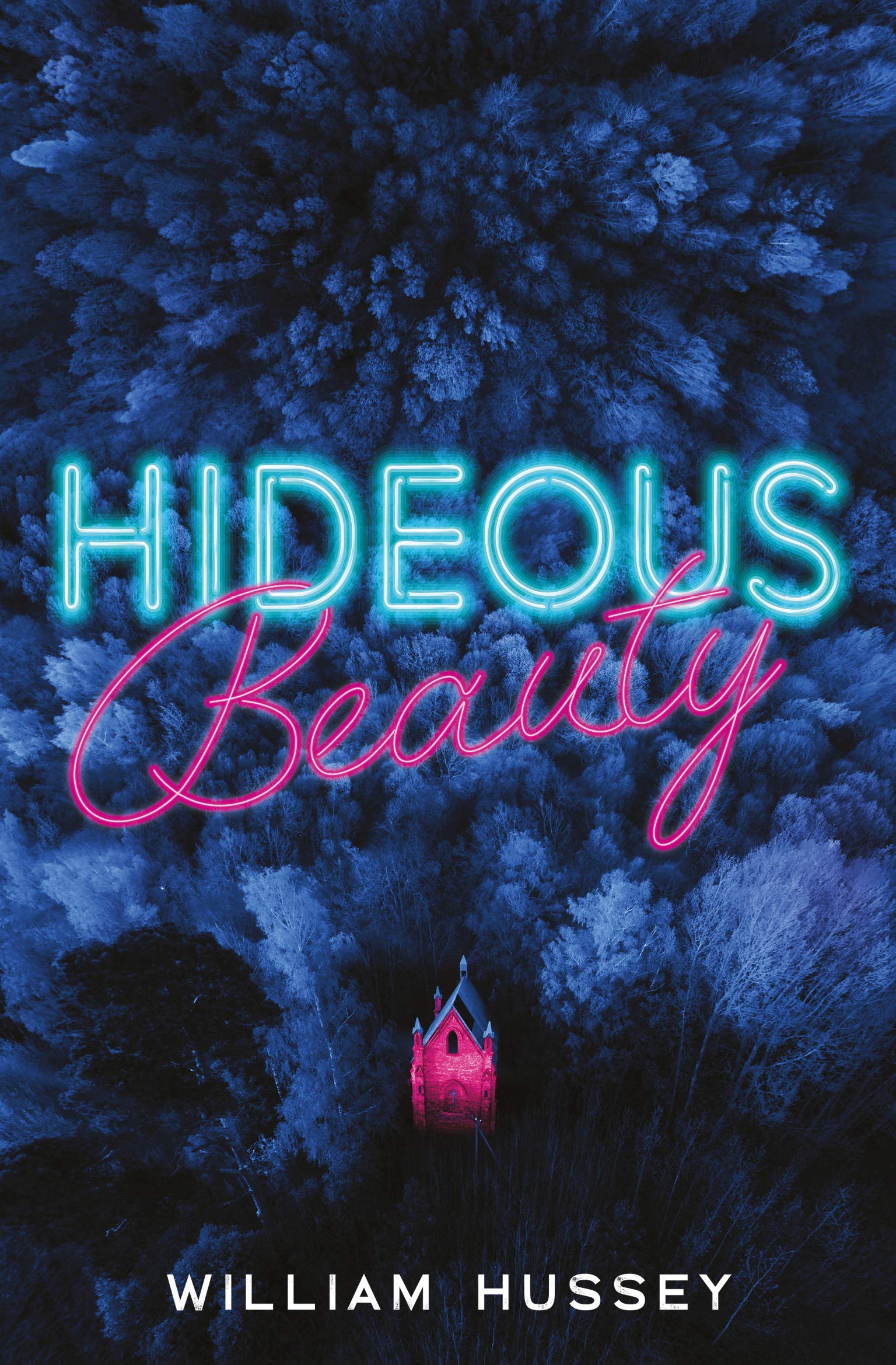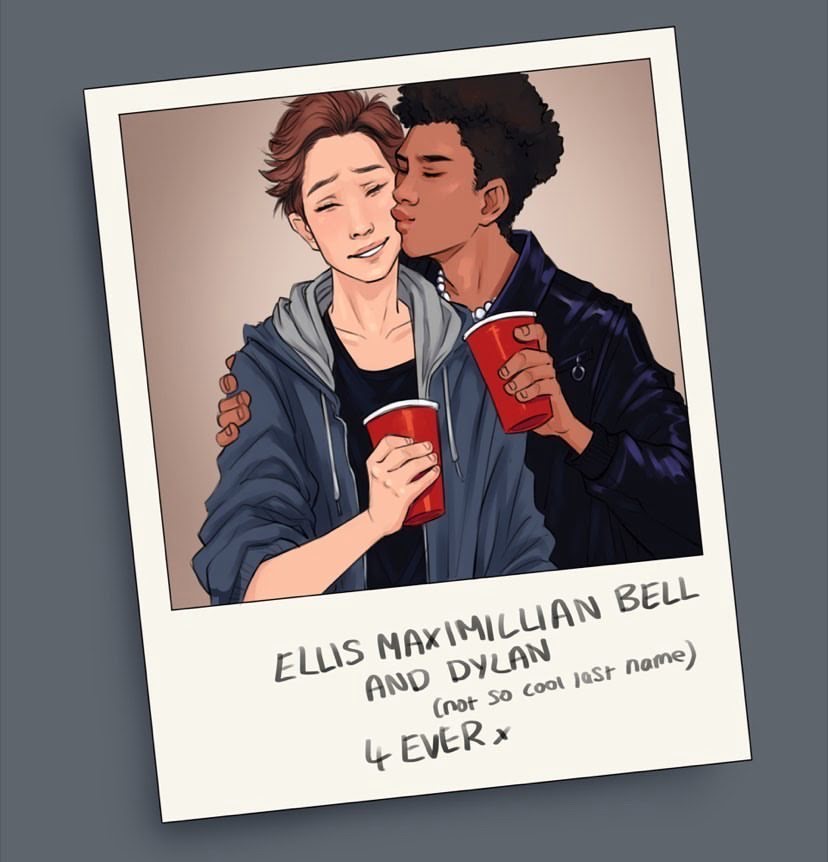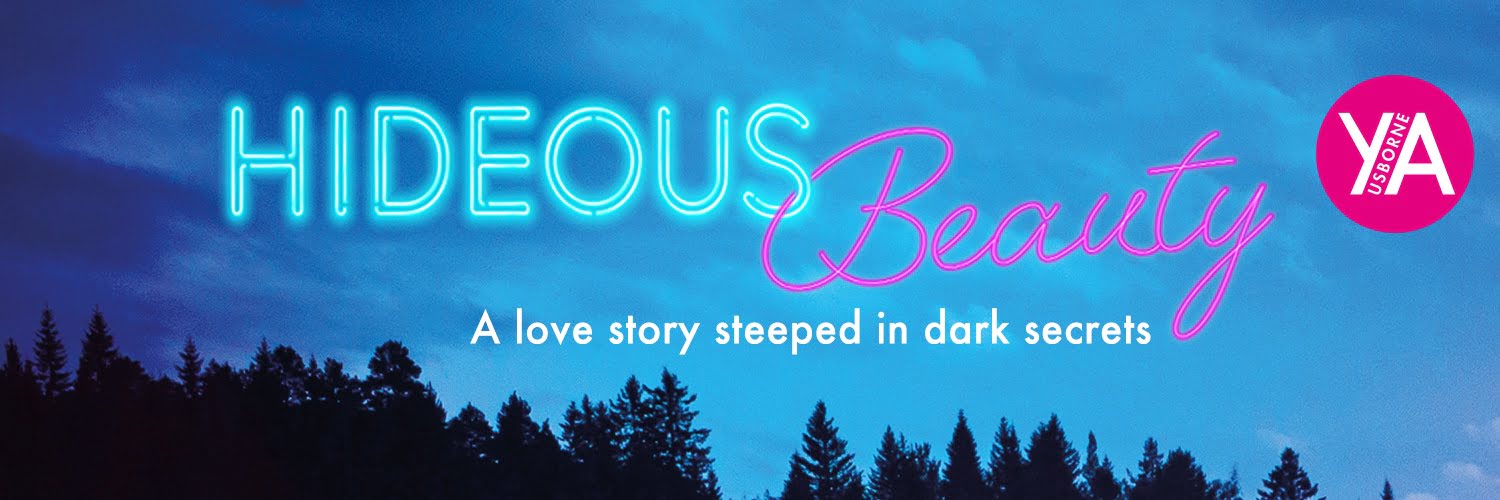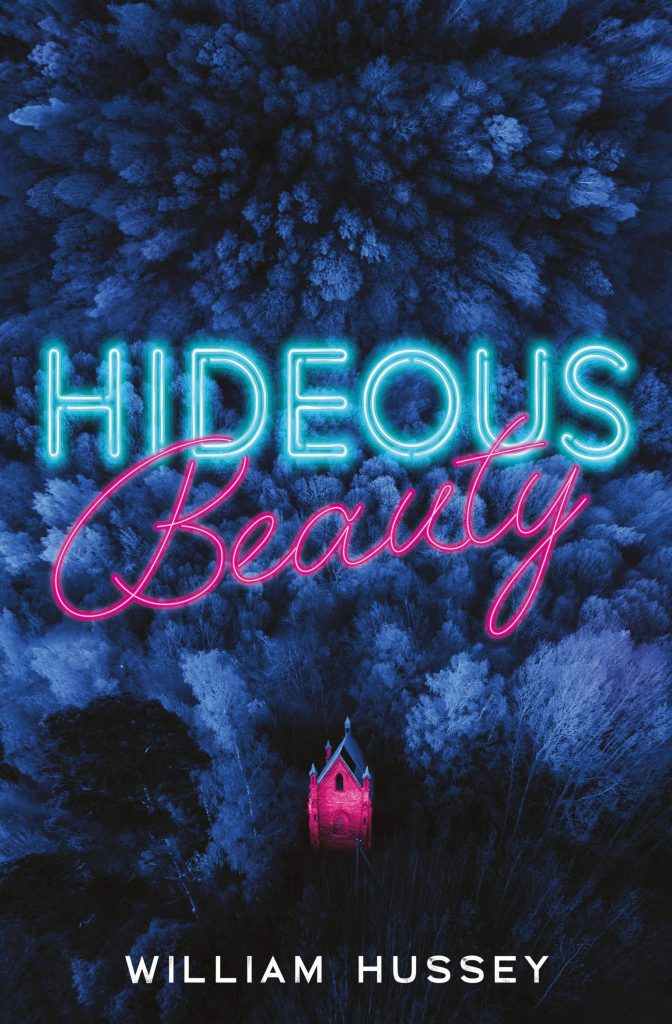Hideous Beauty: A YA love story steeped in dark secrets…
Dylan is forced to come out after his secret relationship with Ellis is exposed on social media, but to his surprise, everyone is really supportive – or appears to be. But Dylan’s and El’s happiness is short-lived, and following a tragic accident, Dylan begins to realize how little he knows about the boy he loves or those closest to him…

Without giving too much away, can you tell us about your new YA book Hideous Beauty?
Hideous Beauty is the story of a whirlwind romance between two boys who seem polar opposites but who find peace and strength in one another. Then a tragedy happens that tears them apart. From that moment on, our hero, Dylan, has to face not only his grief for this precious person he has lost but also a mystery: who rescued him from certain death but left his boyfriend Ellis to drown?
And perhaps more importantly, why?
The pursuit of that question will reveal a darkness at the heart of his hometown, Ferrivale. A place that likes to present itself as modern and tolerant and liberal, but where old prejudices run deep.
I was very interested in how you actually wrote Hideous Beauty – the book expertly flips between the past and present and I wondered how you planned this and what the writing process was like for you?
Well, I knew I wanted to write not only this big, breathless queer love story but also a mystery that deals with shallow ‘acceptance’ of LGBTQ+ people. So the tragedy had to happen very near the beginning of the book to kickstart the plot. But then how to tell the love story? It could only be done in flashback chapters, but I didn’t want these past remembrances to be incidental. They needed to grow the characters and speak to the present mysteries in the story.
I decided I had to write the book as two stories that mingle and, finally, collide at the end. I admit, it was tricky. As a writer, I tend to write linearly. I don’t like jumping between parts of the book as I go. So I needed to carefully plan out the plot before I started (I had a huge board of post-it notes and bits of string linking them!) but I also had listen to the characters as they grew in the story. When they really started coming to life, they would often set me down a new plot avenue or revelation I hadn’t anticipated when I started.
Your main characters, Dylan and Ellis, are such wonderful creations! How would you say they are similar? How are they different? Were they inspired by anyone you know?
My aim was to write to two very different young LGBTQ+ characters. One coming from a seemingly liberal home who was still very much in the closet and one from an extremely homophobic background who appeared to be robustly comfortable in his sexuality and identity. As we get to know these boys, however, we discover that Ellis’ wonderful confidence has its fault lines while the more superficially vulnerable Dylan has this inner steeliness. I wanted them to complement each other and find mutual strength in their relationship. In the end, they help each other grow.
As for who they might be based on, that would be telling! But I always say, Dylan is me and Ellis is the person I’d like to be.
Acceptance is a central theme in the story, but you talk about how acceptance can often hide prejudice. Can you elaborate more on this and why you thought it was an important theme to explore?
I think there is a lot of superficial ‘acceptance’ today. People say, ‘Oh, we’re OK with gay people’, as if that in itself is a virtuous attitude. I mean, what a treat to be tolerated! And often, when apparent acceptance is tested, even a little, it will fracture and break, leaving LGBTQ+ people in just the same position we’ve always been in. That is what I wanted to examine in Hideous Beauty: the dangers of insincere acceptance.
Dylan is what people might think of as the ‘safe gay’. At the start of the story, he keeps himself to himself, he isn’t obviously LGBTQ+, whereas Ellis is wonderfully himself from the get-go – he wears pearls to footie try-outs, accessorises his school uniform etc. As one character says later, ‘El insisted upon himself’.
Ferrivale is comfortable with Dylan in a way it isn’t with Ellis, and yet it claims to accept them both. But at every turn, El faces challenges that Dylan doesn’t, and this is what places him in danger – because the ‘tolerance’ of the town and larger society meets its breaking point beyond Dylan and at the outskirts of Ellis. It’s a phony and hypocritical and perilous sort of ‘acceptance’.
So the message of the book is this: for acceptance to be worth anything it must be total and on the terms of the person asking for it, not on the terms of those ‘offering’ it.

I finished Hideous Beauty in two days and was trembling by the end of it – it is absolutely thrilling and full of raw emotion. Did you have to edit a lot out of the story? How did you ensure it has that ‘page-turning quality?
There were some darker moments that we shaded slightly and I actually think the book has become more impactful for being a little gentler. But by and large, this was the story I wanted to tell. The rawness of the emotion survived the edits, and I’m really thankful to my editor, Stephanie King, for ensuring we kept all of that.
As far as keeping it pacey, I wrote the first draft in just a few weeks. I always tend to do this with first drafts. I think if you can set the story down quickly then you will always retain that energy, no matter how much reworking you do later. I’m also a sucker for a cliff-hanger, so I tried to end most chapters on some sort of plot point or emotional beat that needed to be resolved. I also think the alternating chapters help – you finish a love story one and you want to whiz on to get back to that thread; you finish a mystery chapter and you want to find out what happens next. I think it’s an effective way to tease the reader along.
There were some very painful moments in the book and some complex, hard-hitting themes explored. Were they difficult to write?
I cried more writing this book than any I have before. I wrote it in the months after losing my Mum to lung cancer and sepsis and the story is very much about grief. I actually think it helped a lot in my own grieving process, to go on this journey with Dylan. I also did a lot of research into issues like abuse, drug dependency and chemotherapy etc, and while they were difficult subjects, I always left the research feeling heartened by the humanity and strength of the people I had spoken to.
Do you have a favourite scene or moment in Hideous Beauty?
It has to be the epilogue. Which we can’t talk about because… SPOILERS! But I think it ends the book on such a lovely, positive note, especially after all the darkness. But… um… yes, you’ll just to read it to find out why it’s my favourite scene!
I know you visited lots of young LGBTQ+ people for the book – what was that experience like? Why was it important for you to do this?
It was amazing! I spoke to a few LGBTQ+ clubs in schools as research before I started writing. I wanted to not only reflect their experiences of modern intolerance and prejudice, but to try to capture their voices. After all, I’m not 17 myself anymore! It’s been really gratifying to hear reviewers say that these young characters ring true in the book.
But yes, speaking to these kids was an absolute privilege. They face some of the same old challenges I faced when I was there age, but there is also this mask of acceptance they also have to deal with. I left every conversation so impressed by their knowledge of the history of the LGBTQ+ struggle and their commitment to go on fighting for our rights.

How much do you think life for the LGBTQ+ community has changed since your own experiences of growing up in the 90s?
There has obviously been huge strides forward, no one can deny that. When I was a kid, gay people couldn’t marry or adopt. Thanks to the horror of Section 28, we weren’t even allowed to be educated about LGBTQ+ sexual health and queer relationships in school. Our very existence was virtually erased from any syllabus. This was a criminal omission, in my opinion, that led to suicide, self-harm, avoidable premature deaths and health issues for an entire generation of queer people.
But still, I think some of my friends in big cities don’t realise just how ingrained deep and violent homophobia still is in this country. 90% of the UK isn’t like London or Manchester or Brighton. It’s more like rural Lincolnshire where I live – vast parts of it still deeply conservative and quietly simmering against whatever progress we have made. There’s an ugliness that feels like it has been biding its time – it never really went away – and unless we’re very careful, it will come roaring back out into the open again, ready to tear down everything we’ve achieved.
That’s why Pride remains important. It’s why queer representation in fiction remains important and why coming out stories are still vital, because coming out remains a huge issue for the majority of kids.
I often wonder if authors think about their characters after their book has been published. Do you have any ideas about what any of your characters might be doing now?
Oh my goodness, I try not to. I think Hideous Beauty is pretty much a complete story. Yes, some of the characters have plans at the end of the book, but I’d like readers to imagine those futures for themselves. Although we might never meet in real life, writing and reading is a collaborative enterprise between author and reader – we each bring something to the party! And I think it’s incumbent on the writer to be generous and let the characters wander off at the end of their story, right into the readers’ imaginations. That’s why I think fanfic is so brilliant. I’d love to hear what readers think Dylan or Mike might be up to in the future!
I’ve heard that a new book is in the pipeline for 2021! First of all, congratulations! Secondly, can you give us any ideas about what it’s about?
There is! It’s coming out next summer, but I can’t really tell you anything about it other than the teaser at the end of Hideous Beauty:
‘IMAGINE A WORLD WHERE BEING GAY WAS ILLEGAL’
Intrigued?
Finally, can you describe Hideous Beauty in three words?
Love Wins. Always!



